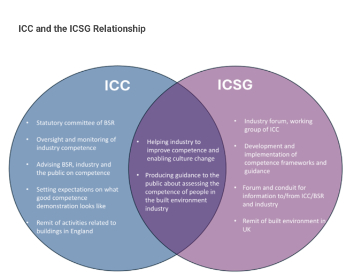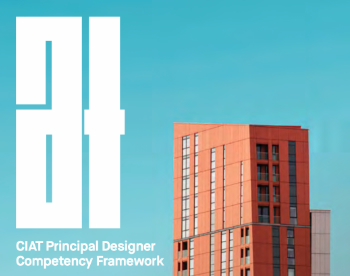Proposal for a standard method for the preparation of construction industry knowledge
Contents |
[edit] The problem
Construction is a knowledge-based industry which involves:
- Sharing knowledge about best practice, processes, standards, research, innovation and technologies.
- Capturing and disseminating knowledge as project teams break up, and passing this on for the benefit of future projects.
- Passing building information to clients, occupants and facilities managers through processes such as Building Information Modelling.
- Communicating information to third parties such as statutory authorities and stakeholders.
The industry disseminates much of its knowledge electronically, however, it prepares and presents it as if it is being printed, often in pdf format, with all the limitations of hard-copy documents and exploiting few of the inherent benefits of electronic media.
In its current form, much construction industry knowledge is:
- Static, and so rapidly out of date.
- Formatted, as if for a specific paper size, and so difficult to re-use on different platforms.
- Fragmented, not connected to related information that may be necessary to understand the subject as a whole.
- Without properties, not properly indexed, titled, referenced, dated or attributed.
- Protected against re-use, even where the goal is dissemination.
- Visual, presenting images of data rather than actual data.
- Duplicated, with multiple organisations producing similar information about the same subjects in slightly different ways.
This makes much construction industry knowledge difficult to find, assess, understand, process, use and re-use. As a result, the industry is less efficient, less collaborative, less innovative and more fragmented than it might otherwise be.
[edit] The objective
If the industry adopted a consistent approach to preparing and disseminating knowledge, it would be easier to understand, find and share. It would be easier to collaborate in its preparation, and it would be easier to index so that related information could be mapped.
Construction industry knowledge should be:
- Flexible, so it is reusable across different platforms.
- Indexable so different sources can be related to one another.
- Information rich, so it can be interrogated.
- Clearly attributed, with authorship and status information embedded.
- Clearly licensed, so the conditions for re-use are easy to understand.
- Open, allowing, where appropriate, sharing and collaboration.
[edit] The proposal
It is proposed that a three-component standard should be developed for the consistent preparation and publication of knowledge throughout the construction industry. This will make it easier to commission knowledge, easier to collaborate in its preparation, easier to find it, use it and share it.
[edit] Component 1: Design guidelines
A set of simple design guidelines for the preparation of knowledge to ensure it is easy to collaborate, distribute, and use across different platforms. Reference to the guidelines in commissioning documents will ensure authors produce knowledge that does not need to be re-processed for use and will maximise its benefit to the industry.
For example, if references are included at the end of each page of a piece of knowledge, it is only possible to use it in that page format. Using it in any other format, such as in a web page, would require significant re-processing. References should be at the end. Other examples include; using plain language titles, not hyphenating long words between lines, not splitting text into columns, not using headers and footers and so on.
[edit] Component 2: Licences
Rather than using a copyright symbol, which restricts any use whatsoever, even if the author’s objective is dissemination, a range of licences are available that can be applied to a document very simply by answering yes / no questions:
- Is it publicly available? yes / no
- Is it free to use? yes / no
- Is commercial use permitted? yes / no
- Can others distribute it? yes / no
- Is the development of derivative works permitted? yes / no
- Is attribution required? yes / no
[edit] Component 3: Attributes
A simple set of standard attributes, such as; author, date and so on, should be developed that are added to each piece of knowledge to ensure its authorship, status, and content are clear.
A central database of these attributes would make all construction industry knowledge easily searchable, irrespective of its format, source or location. It would also allow attributes to be changed, for example if the knowledge is no longer current.
To comment on a draft standard, see: Construction Industry Knowledge Standard.
Featured articles and news
Twas the site before Christmas...
A rhyme for the industry and a thankyou to our supporters.
Plumbing and heating systems in schools
New apprentice pay rates coming into effect in the new year
Addressing the impact of recent national minimum wage changes.
EBSSA support for the new industry competence structure
The Engineering and Building Services Skills Authority, in working group 2.
Notes from BSRIA Sustainable Futures briefing
From carbon down to the all important customer: Redefining Retrofit for Net Zero Living.
Principal Designer: A New Opportunity for Architects
ACA launches a Principal Designer Register for architects.
A new government plan for housing and nature recovery
Exploring a new housing and infrastructure nature recovery framework.
Leveraging technology to enhance prospects for students
A case study on the significance of the Autodesk Revit certification.
Fundamental Review of Building Regulations Guidance
Announced during commons debate on the Grenfell Inquiry Phase 2 report.
CIAT responds to the updated National Planning Policy Framework
With key changes in the revised NPPF outlined.
Councils and communities highlighted for delivery of common-sense housing in planning overhaul
As government follows up with mandatory housing targets.
CIOB photographic competition final images revealed
Art of Building produces stunning images for another year.
HSE prosecutes company for putting workers at risk
Roofing company fined and its director sentenced.
Strategic restructure to transform industry competence
EBSSA becomes part of a new industry competence structure.
Major overhaul of planning committees proposed by government
Planning decisions set to be fast-tracked to tackle the housing crisis.
Industry Competence Steering Group restructure
ICSG transitions to the Industry Competence Committee (ICC) under the Building Safety Regulator (BSR).
Principal Contractor Competency Certification Scheme
CIOB PCCCS competence framework for Principal Contractors.
The CIAT Principal Designer register
Issues explained via a series of FAQs.
























